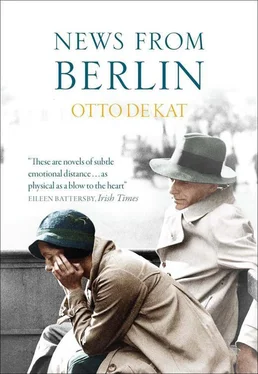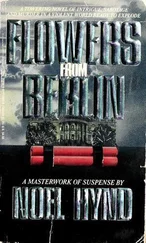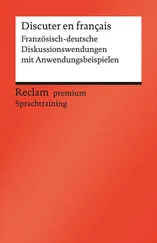Kate saw the traffic on her bus route increase. It started to rain, and London unfurled its umbrellas. For no particular reason her mind turned to the time she had gone to the stadium with Peter. The Olympic Games had transformed the city, making it brighter and cleaner than ever before. He had invited her to accompany him to the athletics competitions taking place that afternoon. They had finished work early, no further surgery being required for the day.
They drove through a city on temporary reprieve from the grip of steel. Peter, being a doctor, had a car, enabling them to reach the Olympic stadium without difficulty. Across Tiergarten to Charlottenburg they went, where the flags would have been enough to festoon the Kurfürstendamm from end to end. Kate recalled how Peter always gave his car a pat on the bonnet before he got in: good dog. It was a Mercedes with a canvas hood, one of those wonderful sleek jobs with big headlamps and a running board, the very ones she had, in time, grown to despise. There always seemed to be men in leather coats with wide belts getting out of them. Peter was not someone who associated with those types; he was the last likeable German she had met, aside from Carl, of course.
He had put his arm around her shoulder when they entered the stadium. She had not objected. To her his warm personality was endearing, and the way he held her had nothing possessive about it, having more of boys on their way to a game of football and out to have a good time. His left hand rested near her neck, with his right he fought to keep the umbrella positioned over her head in the multitude thronging to see the games. He had brought her up to date on the various events: discus, high jump and javelin. The names of the athletes meant nothing to her, but she was carried away by his enthusiasm, wanting to know if there were any Dutch participants and which ones to look out for. She pointed up to his umbrella, saying the rain had stopped. He laughed, and removed his hand from her shoulder, which she thought a pity in a way, as it had given her a sense of togetherness, of being part of the crowd milling around them, where no-one knew her, where they were just another couple queuing up to take their seats on a stadium bench. Her pleasure had nothing to do with the man beside her, charming as he was, glancing at her and gallantly removing his coat so she could sit on it.
Where would Peter Henning be now? Kate sat by the window of her bus, thinking how odd it was that her memory of that afternoon should be so vivid. Afterwards, they had gone to the bar of Hotel Esplanade, where she thought Oscar might be, and he was. They had spent the evening there, with Peter and Oscar in animated conversation. Athletes and results were hotly debated in the smoke-filled bar, which was crowded with foreigners, Olympic officials, and reporters. Berlin had never felt freer or more exuberant. Peter had insisted on dropping them off at home, Fasanenstrasse being too far away for them to walk. He had lowered the canvas hood of the car; it was a warm evening. Besides, the rain had stopped, he said, flashing her a smile. Upon arrival he held the car door open for her and helped her alight, squeezed her hand briefly, saying he had enjoyed their outing immensely and would never forget it. Oscar had joined them as they stood there, putting one arm around her and the other around Peter. An August evening as never before. She would not forget it either.
The bus pulled up, she had to get off.
Peter had left the hospital a few months later. Kate had received a letter from him explaining his motives in the vaguest of terms. She had found it very strange, they had made such a good team in the operating theatre. Had he fled, was he Jewish by any chance? Was it something to do with her? That was the last she had heard of him. Shortly after that she had resigned as well.
In the hall of the Richmond she found herself in a crush of people. Not far away a bomb had exploded, one of those that went off by accident, days or weeks after being dropped. By accident indeed, for today there were dozens of wounded and several dead. A frequent occurrence, but no less harrowing for that. There were dormant bombs all over the city.
Kate took the stairs to her wing. She paused a moment before entering the ward, listening to the moans of the wounded down in the hall. It was not for her to offer first aid as she was no longer a nurse, and would not even be permitted to help. Nobody knew that she had worked as a theatre assistant in Berlin, and she had preferred to keep things that way. In a few days’ time some of those wounded would turn up in her ward anyway: more cases for the subtle affairs department. Kate wanted to deny it, but failed: now that Matteous had been discharged, the hospital seemed to have lost its spirit. She had a sense of vacancy, in a ward brimming with need. The cubicle she had visited daily for so many months had a new occupant, equally injured and equally in need of assistance. So yes, she would step in, but she was already looking forward to the afternoon, when she would teach Matteous to write.
*
He would be arriving in a hour, armed with the tools for the letter he would write one day: copybook, pen, and primer. They had been practising every afternoon for a whole week. The alphabet had been recited and painstakingly written out. Kate had pronounced each letter in a clear, slow voice, over and over again. Matteous wanted to write in English, the language he had first heard in the mines of Élisabethville. She had no idea how to teach somebody to read and write. She could not remember how she had been taught herself. You had a picture alphabet, you had Jack and Jill going up the hill – how on earth did these things go? You were a sponge absorbing words which you then squeezed out onto the page; five or six years old, the magical age of seeing letters turn into words. Had there been any particular method to it? She did not know, she would simply go about teaching Matteous the basics of English as best she could.
The small table by the window was their practice field. They sat side by side for many a long hour, with Matteous hunched over a word taking shape under his pen, even as it fell apart again. They repeated the sounds countless times, looking to see how they fluttered down onto the paper. Kate gave the example and Matteous followed suit with ink-stained fingers. He became agitated, repeatedly getting stalled halfway through what he wanted to say, the simplest of statements coming out garbled. Coherence was what was lacking. There were all those letters strung into words, which, taken together, did not make sense. It drove Matteous to distraction. He would rather be trudging through the forest, going down the mines, even marching through the savannah with a gun over his shoulder – anything was better than this blind grappling with script. Kate understood. She too found it hard to stay the course. But she had given him her word, and would not go back on it now.
She also understood how stifled he must feel at Barkston Gardens, confined as he was to a classroom of a few square metres overlooking a garden with a fence around it. He had travelled thousands of kilometres only to end up here, in the home of a white woman who made him acutely aware of the loss of his mother. Too bad then, forget about writing a letter, he would simply go back to Élisabethville, where else was there to go? Living in a bedsit on a busy London street would be the end of him. It was a week since he had moved in, and already his head was bursting. The dreams he had at night were wearing him out, he could hardly get out of bed in the morning. It was only the thought of seeing Miss Kate that kept him going, he had told her in a roundabout way.
This afternoon he was early. Kate saw him from the window. The rain had stopped. He was wearing an old army shirt, no jacket or jumper. A Negro. People noticed him, some stared. The gardener paused in his labours to call out to Matteous, she could not make out what. The bell rang, two short bursts in rapid succession, and she flew to the door. But at the third word he tried to write he put his pen down and slumped forward, head down on the table. His eyes were closed: this was no act of protest, it was defeat. He was stumped, the thoughts arising in his head were impossible to cram into words on paper. Miss Kate should let him go, he wanted to go home, not that he knew where that was, because Élisabethville was an empty place and his village had been razed to the ground. It was true that the Belgian officer had saved his life, but if it hadn’t been for Miss Kate he would have been found with a rope round his neck long ago. Would she please let him go, please, Miss Kate, s’il vous plaît.
Читать дальше












